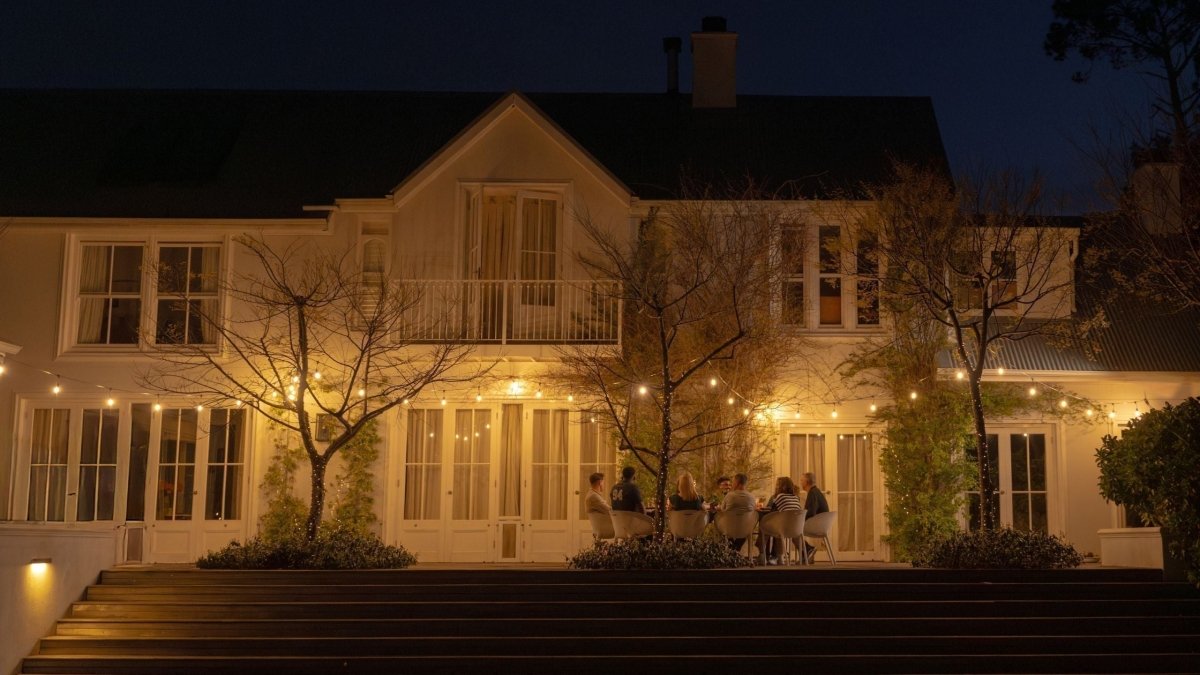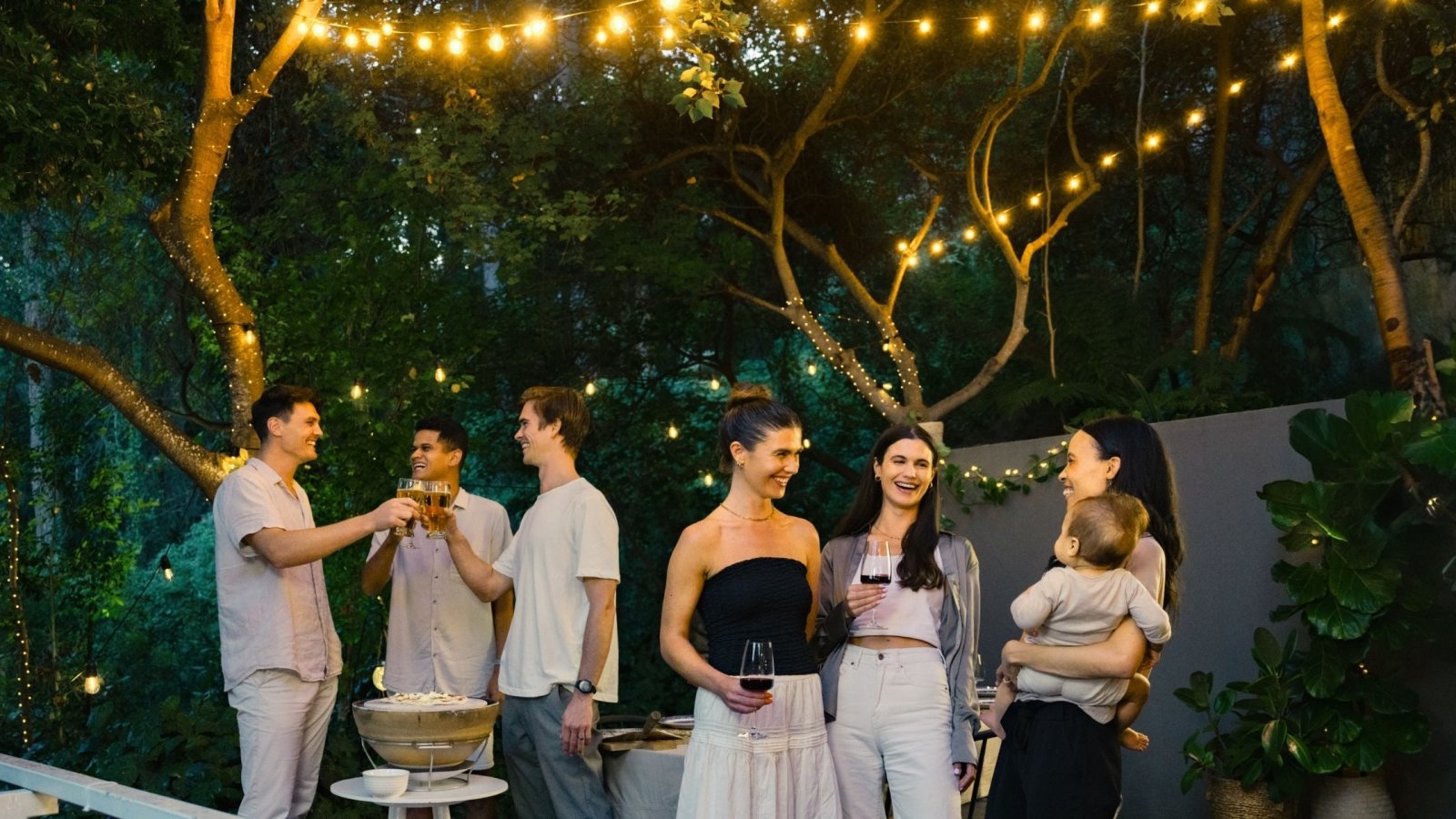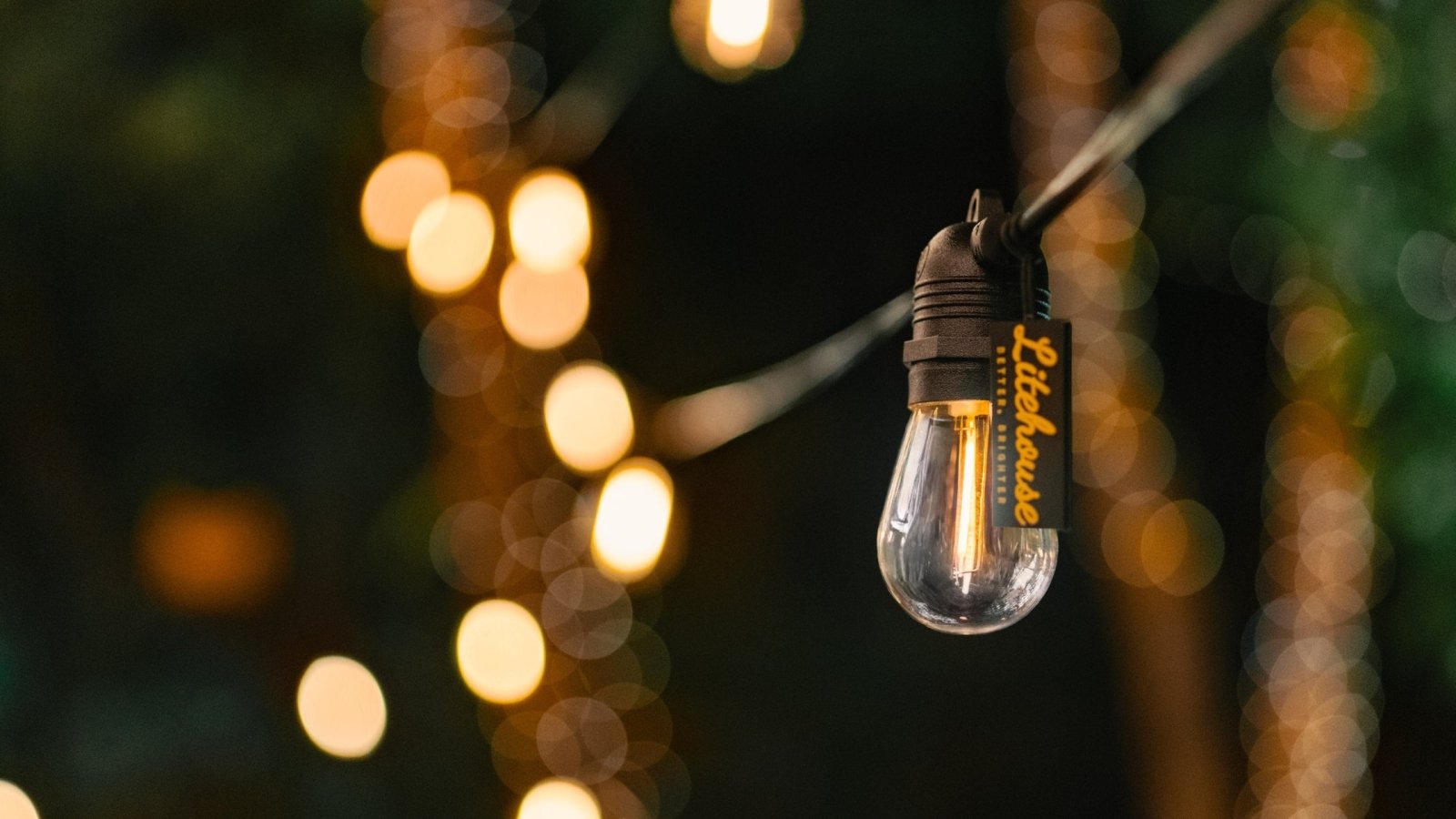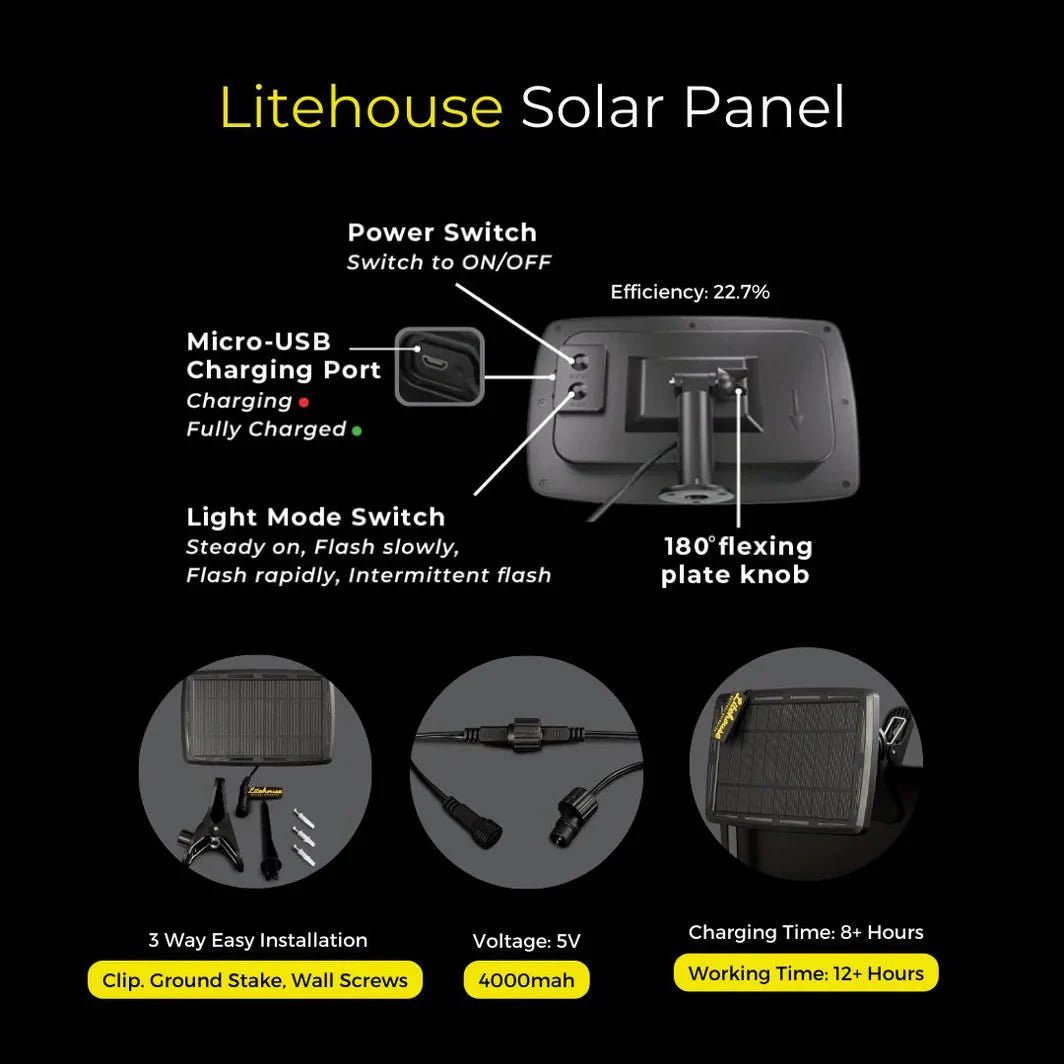When we think about powering our solar lights outdoor, the common assumption is that they need direct sunlight to function effectively. But is that the whole story? As we delve into the world of solar energy, it's fascinating to discover that even on cloudy days, our solar lights can still soak up enough light to illuminate our gardens and pathways at night.
Understanding how solar LED lights work in various weather conditions is crucial, especially for those of us looking to make our outdoor spaces shine all year round. Let's explore the ins and outs of solar lighting and debunk some myths along the way.
Key Takeaways
- Solar LED lights do not require direct sunlight to charge effectively; they can harness energy even under less than ideal sunlight conditions, making them a versatile outdoor lighting solution.
- Strategic placement of solar lights can significantly improve their charging efficiency and operational performance, with south-facing positions in the Northern Hemisphere being ideal for maximising sunlight exposure.
- Solar lights incorporate advanced technology such as photovoltaic cells for energy conversion and high-quality batteries for energy storage, enabling them to function efficiently without conventional electricity sources.
- Weather conditions and potential obstructions like trees or buildings can affect the performance of solar LED lights, though advanced solar panel technology allows for energy capture even on cloudy days.
- Besides outdoor use, solar lights offer innovative indoor applications, such as providing supplementary lighting for indoor plants or creating an inviting atmosphere with patio lighting.

Do solar LED lights work only with direct sunlight?
In exploring the efficient functioning of solar lights, particularly for outdoor use, a common query arises: do solar LED lights require direct sunlight to operate optimally? Our examination delves into this question to bring clarity and enhance understanding around the utilisation of solar lights outdoors, such as those available in our Litehouse collection.
Do Outdoor Solar Lights Need Direct Sunlight to Charge?
The short answer is no, outdoor solar lights do not need direct sunlight to charge. This revelation often surprises many, as the general assumption leans towards the necessity of bright, unobstructed sunlight for solar products to function effectively. However, the truth lies in the versatility and advanced engineering of solar lights outdoor technology, which allows these devices to harness energy even under less than ideal sunlight conditions.
Outdoor solar lights, including garden lights and other outdoor lights offered by Litehouse, are designed to capitalize on natural light available throughout the day. These lights use a photovoltaic effect to convert solar energy into electrical energy, storing it for later use. It's essential to understand that while direct sunlight provides the most efficient charge, these innovative devices can also gather energy from indirect sunlight.

Cloudy days or shady areas pose challenges yet aren’t deal-breakers for charging outdoor solar lights. The photovoltaic cells in solar lights are sensitive enough to capture diffused sunlight that penetrates through clouds or bounces off surrounding surfaces. This capability ensures that your garden lights and other solar lighting solutions from Litehouse continue to illuminate your outdoor spaces, even when the weather isn't perfectly sunny.
Maximising the charging potential in varying lighting conditions involves strategic placement. Ensuring that your solar lights outdoor are positioned where they can receive maximum daylight exposure, without being overshadowed by trees or buildings, can significantly improve their charging efficiency and operational performance.
Moreover, advancements in solar technology have led to the incorporation of alternative charging methods for days when sunlight is minimal. Some models in the Litehouse solar lighting collection feature USB charging capabilities, offering a backup solution that guarantees your outdoor lights remain functional, irrespective of the solar charge obtained during the day.
Outdoor Solar Lighting Product Showcase:
1. Litehouse Solar Festoon Outdoor Bulb String Lights - Traditional LED Bulbs, Black

2. Litehouse Solar Outdoor LED Fairy Lights - Black String
3. Litehouse Solar Mini Outdoor Bulb String Lights - Classic LED Bulbs, Black
How Solar LED Lights Work
In our quest to illuminate our outdoor spaces, we've increasingly turned towards innovative and sustainable options like solar lights. Understanding the operation of these eco-friendly alternatives, especially for our outdoor solar lights, is essential. So, let's delve into the mechanics behind solar LED lights and discover the remarkable technology that powers them.
Photovoltaic Cells
At the heart of every solar light, including those impressive outdoor solar lights we offer at Litehouse, lies the photovoltaic (PV) cell. These cells are the primary component responsible for converting sunlight into electrical energy. Composed of layers of silicon or other conductive materials, when sunlight hits these cells, it excites electrons, thus creating an electric current. This fundamental principle, known as the photovoltaic effect, enables our garden lights and other outdoor lights at Litehouse to harness solar energy efficiently, making them a cost-effective and environmentally friendly lighting solution. By installing solar lights outdoor, you're not just lighting up your space; you're also tapping into the infinite energy of the sun.
Battery Storage
Once the photovoltaic cells capture sunlight and convert it into electricity, the next crucial component comes into play: the battery storage. Our Litehouse solar lighting collection, featured at Litehouse's Solar Lighting, uses high-quality rechargeable batteries to store the solar energy produced during daylight hours. This stored energy is indispensable for the lights' function during the night or overcast conditions. The batteries employed in solar lights outdoor can vary, including types like lead-acid, nickel-cadmium, nickel-metal hydride, and lithium, each offering unique advantages. Efficient energy storage ensures our solar lights outdoor provide consistent, reliable illumination, negating the need for conventional electricity sources.

Amount of Sunlight Required
One of the most common inquiries we receive at Litehouse relates to the amount of sunlight required for outdoor solar lights to function effectively. While it's a prevailing belief that solar lights need direct sunlight to charge adequately, our garden lights and other outdoor solar lights are designed to maximize the available sunlight, operating efficiently even in indirect sunlight.
Cloudy weather, undoubtedly, impacts the charging process, as less sunlight reaches the photovoltaic cells. However, advancements in solar technology, such as the inclusion of USB charging capabilities in some of our models, enhance the charging flexibility, ensuring our outdoor solar lights remain functional irrespective of weather conditions.
By strategically placing solar lights, such as those found in our garden lights selection at Litehouse, in areas that receive the most daylight, we can optimize the charging process. Even on cloudy days, diffuse light, though less intense than direct sunlight, is still sufficient to charge the photovoltaic system, thus keeping the solar lights operational. This adaptability and efficiency illustrate the innovative design of our solar lighting solutions, offering you the capability to light up your outdoor spaces without worrying about direct sunlight exposure.
Ways to Use Your Solar Lights
Solar lights outdoor solutions have revolutionised how we illuminate our spaces, blending seamlessly with eco-friendly practices and aesthetics. At Litehouse, we've curated a collection that not only meets the diverse needs of outdoor lighting but also extends to innovative indoor applications. Leveraging solar technology allows us to explore and enjoy sustainable lighting options in various settings.
Indoor Plant Lighting
Indoor plants not only purify our air but also add a tranquil vibe to any space. However, achieving the right lighting balance for them can be tricky, especially in areas of the home that don't receive ample sunlight. This is where our outdoor solar lights come into play. By positioning solar fairy lights from Litehouse around your indoor plants, especially near sunny windows, you provide them with the supplementary light they need for photosynthesis during the day. At night, these setups transform into enchanting displays, enhancing the overall ambiance of your living space. It's a perfect marriage of functionality and aesthetics, ensuring your green friends thrive while adding a magical touch to your home.
Patio Lighting
Our patios and outdoor living areas are extensions of our homes, offering a bridge to the great outdoors. However, lighting these areas traditionally requires significant electrical wiring work or the limitations of battery-operated solutions. With Litehouse's garden lights and outdoor lighting solutions, we offer a stylish and sustainable alternative. Using solar lights outdoors on your patio not only illuminates these spaces beautifully after sundown but also creates an inviting atmosphere for evening gatherings or a relaxing night under the stars.

Festoon string lights, available through our Litehouse collection, are particularly suited for this application. They can drape over your garden or patio areas, enveloping the space in a warm, soft glow. Since these outdoor solar lights are powered by the sun, they're incredibly eco-friendly and cost-effective, reducing your carbon footprint while saving on electricity bills. Hosting a dinner outside or simply enjoying a quiet moment becomes more special and sustainable, thanks to the innovative use of solar lighting.
Exploring the potential of solar lights outdoors has never been more exciting. Whether it's for enhancing the beauty of your indoor plants or bringing a warm, inviting glow to your patio, Litehouse offers a range of solar lighting solutions that are as kind to the environment as they are on the eyes. Our collection boasts versatility, efficiency, and style, making sustainable living not just a choice but a truly illuminated experience.
Factors Affecting Solar LED Light Performance
In our pursuit of excellence at Litehouse, we're constantly exploring the capabilities and optimising the performance of our outdoor solar lights. It's crucial to understand that multiple factors can influence how well your garden lights or any type of solar lights outdoor perform. Below, we dive into some of these key aspects.
Positioning and Orientation
The placement of outdoor solar lights plays a pivotal role in their efficiency and operation. It's not just about putting them anywhere outside; it's about strategic positioning to harness maximum sunlight. For instance, solar lights installed at an angle facing south in the Northern Hemisphere tend to receive the most sunlight. Additionally, ensuring that your solar lights outdoor are placed in areas that receive direct sunlight for most of the day can significantly enhance charging and, consequently, lighting performance. At Litehouse, we recommend positioning your garden lights in open areas, free from shade, to maximise exposure to sunlight.

Weather Conditions
While it's a known fact that solar lights outdoor rely on sunlight, it's interesting to note that they can still perform on cloudy days, albeit with reduced efficiency. Weather plays a significant role in the operational efficiency of outdoor solar lights. During sunny days, your Litehouse solar garden lights will charge more efficiently and last longer throughout the night. On overcast days, the intensity of solar radiation decreases, which can lead to shorter illumination times. However, it's worth noting that due to advanced solar panel technology, our solar lights outdoor can still capture and convert solar energy on cloudy days, ensuring your garden remains lit.
Obstructions
Another critical factor affecting the performance of solar LED lights is the presence of obstructions. Trees, buildings, or any large objects casting shade can significantly inhibit the ability of your outdoor solar lights to charge effectively. Periodic trimming of foliage and thoughtful placement can mitigate this issue, ensuring your Litehouse solar lights outdoor receive ample sunlight. Similarly, keeping the solar panels clean from dirt, snow, and bird droppings is essential for maintaining charging efficiency. A clean solar panel means more light absorption and better nighttime illumination for your garden lights.
By understanding and optimising these factors, we at Litehouse ensure that our range of outdoor solar lights not only meets but exceeds your expectations for sustainable and efficient outdoor lighting solutions. Whether it's enhancing the charm of your garden or illuminating your pathway, our solar lights outdoor are designed with performance and durability in mind, promising to brighten your outdoor space, no matter the conditions.
Conclusion
We've explored the intricacies of outdoor solar lighting, highlighting how strategic placement, weather adaptability, and obstruction management can significantly enhance their performance. By understanding these critical aspects, we're better equipped to ensure our gardens and pathways remain brilliantly illuminated. Litehouse's commitment to exceeding expectations with their solar lights means we can enjoy sustainable, efficient lighting solutions that stand the test of time and elements. Let's embrace these insights to light up our outdoor spaces more effectively.

Frequently Asked Questions
What happens when solar panels get too hot?
When solar panels become too hot, their efficiency drops significantly, leading to a considerable reduction in energy capture capability.
Do solar panels need sunlight or just daylight?
Solar panels need both direct sunlight and daylight to function optimally. They convert both into electricity, although direct sunlight is far more efficient.
Why do my solar lights not last long?
The longevity of solar lights heavily depends on their exposure to sunlight and their frequency of use. Those in sun-rich areas and used less frequently tend to last longer.
Do solar lights only come on when it's dark?
Yes, solar lights are designed with a photoresistor that allows them to come on at night when it detects low to no light, ensuring energy is not wasted during daylight.
Will solar lights charge through a window?
Solar lights can charge through glass, but their charging efficiency could be reduced by up to 50% compared to direct outdoor sun exposure.















Leave a comment
This site is protected by hCaptcha and the hCaptcha Privacy Policy and Terms of Service apply.